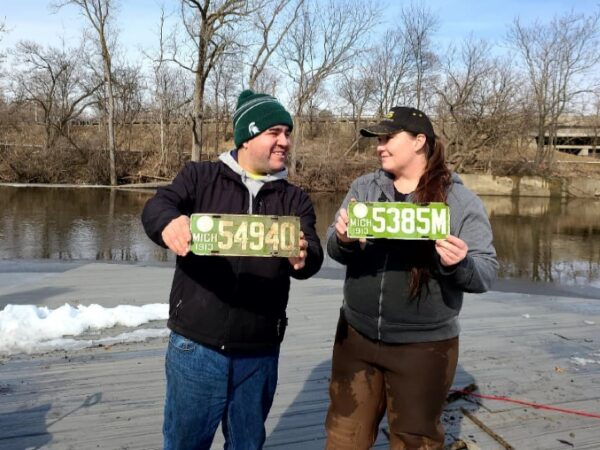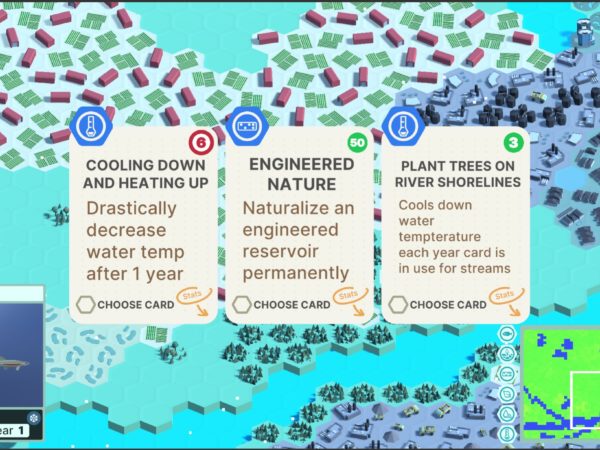
A beef farmer from Michigan, Jason Grostic, is the first to be shutdown by state standards of acceptable PFAS in biosolids. Grostic is now one of many farmers across the country threatening to sue the U.S. Environmental Protection Agency (EPA). He said the biosolids, or fertilizer, that he used was not only EPA-approved but recommended, and that the government “dropping the ball” should not be the reason he’s on the brink of bankruptcy. According to reporting by KMUW, Grostic is still caring for more than a hundred cows, while also juggling a different PFAS related lawsuit.
Earlier this year the Marquette, Michigan company MycoNaut received a $275,000 grant from the National Science Foundation. The two entrepreneurs sell fresh restaurant-worthy mushrooms, but recently started their second company, MycoNaut, to see if they could develop mushrooms to help solve the PFAS problem. This came after reading about research from the University of Minnesota where plants and fungi were being used to break down the “forever chemicals.” One of the company’s founders, Ryan Iacovacci, said if this research has real world applications, they might be able to homogenize PFAS compounds, turning them into iconic salts that are often used for fuel in ionic thrusters — used in space travel.
Great Lakes state of Pennsylvania is one of the top five most polluted water systems in the U.S., based on the new proposed limit for PFAS. Western Pennsylvania is proving to be a hotspot for these “forever chemicals,” and about 19% of water systems in the state have levels above the new EPA limits. On June 3, Pennsylvania Environmental Resources & Energy Committee hosted a hearing about a bill to eliminate the use of PFAS in household products.
In neighboring New York, U.S. Senator Kirsten Gillibrand visited the Shoremont Water Treatment Plant in an attempt to advocate for $20 million in federal funding, to regulate PFAS discharges. This comes after a landmark study detailed how PFAS is in the air, atmosphere, rain, and water iof the Great Lakes basin. It was also discovered that Lake Ontario has the highest amount of the chemical concentration. Likely because it is downstream from the other lakes.
Meanwhile, Minnesota will receive nearly $15 million to combat the chemical pollution. Wisconsin lawmakers are still deadlocked on how to spend PFAS funds. Wisconsin Gov. Tony Evers addressed this on a recent episode of Wisconsin Public Radio’s “Wisconsin Today:”
“For them to be holding any money, whether it’s around child care, whether it’s around PFAS, whether it’s around money for the people in the Eau Claire and Chippewa Falls area to rebound from having some closures of their hospitals,” is wrong, he said to Wisconsin Public Radio. “All that money’s just sitting there. And we can get it out. All they have to do is vote and send it out.”
More PFAS news, in case you missed it:
- Scientists in Canada are urging the federal government to address emerging water contaminants in the Great Lakes, like PFAS.
- On June 20, a public information session about PFAS will be held at Memorial Gardens, in North Bay, Ontario. This will include updates on remediation, in regards to the firefighter foam (which contains PFAS) that was used during training exercises at Jack Garland Airport.
- Another class action lawsuit was recently filed against Prime Hydration in the Southern District of New York. The beverage company was started by YouTubers Logan Paul and KSI in 2022, the company continuously faces class action suits over the ingredients, as the sports and energy drink contains more caffeine than is advertised and in some flavors, PFAS.
- Illinois, Michigan, Minnesota, New York, and 11 other states are considering policies to restrict PFAS in cosmetic and personal care products.
According to Newsweek, recently published research from Wayne State University shows that a father’s exposure to PFAS likely impacts the health of his children.




